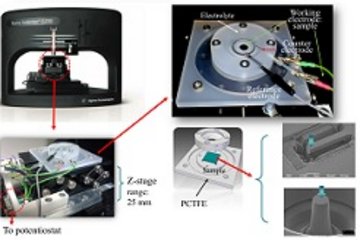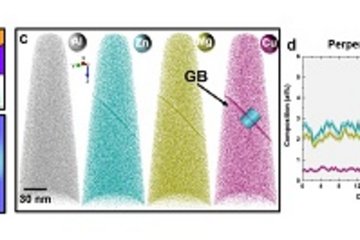All genres
21.
Talk
A modular crystal plasticity framework applicable from component to single grain scale. THERMEC 2011, Québec City, QC, Canada (2011)
22.
Talk
Combining characterization and simulation of grain-scale plasticity in three dimensions. EBSD Conference 2011 of the Royal Microscopical Society, Düsseldorf, Germany (2011)
23.
Talk
A modular crystal plasticity framework applicable from component to single grain scale. IUTAM Symposium Linking Scales in Computations: From Microstructure to Macro-scale Properties, Pensacola, FL, USA (2011)
24.
Talk
How to capture mesoscale plastic strain gradient effects in a physical way -- a look at dislocation mechanics and computational aspects. MST Symposium, Los Alamos National Laboratory, Los Alamos, NM, USA (2011)
25.
Talk
Crystal plasticity modeling using dislocation-based finite element methods. Euromech colloquium 505, "Multiscale effects in fatigue of metals", Ecole Polytechnique, Palaiseau, France (2010)
26.
Talk
A non-local constitutitve hardening model based on polar dislocation densities. IV European Conf. Comp. Mech. ECCM 2010, Paris, France (2010)
27.
Talk
A non-local crystal plasticity model based on polar dislocation densities. 16th Int. Symp. on Plasticity and Its Current Applications, St. Kitts, St. Federation of Saint Kitts and Nevis (2010)
28.
Poster
Signed dislocation densities and their spatial gradients as basis for a nonlocal crystal plasticity model. MMM 2010 Fifth International Conference Multiscale Materials Modeling, Freiburg, Germany (2010)
29.
Poster
A Non-Local Dislocation Density Based Constitutive Model for Crystal Plasticity. Junior Euromat 2010, Lausanne, Switzerland (2010)
30.
Teaching
Advanced Constitutive Models for Crystal Plasticity Simulations - Fundamentals, Implementation, Application. Lecture: Winter School 2014, Research Training Group 1483, KIT, Karlsruhe, Germany, March 18, 2014
31.
Thesis - PhD
On the role of dislocation transport in the constitutive description of crystal plasticity. Dissertation, RWTH Aachen, Aachen, Germany (2013)











